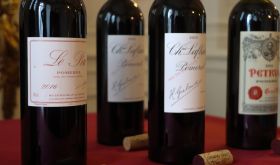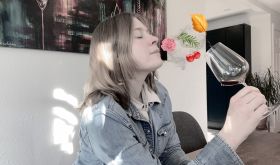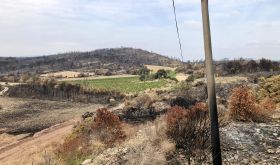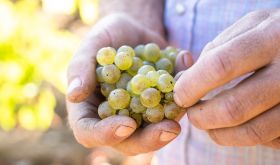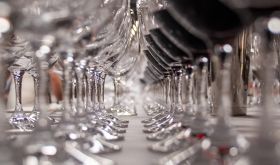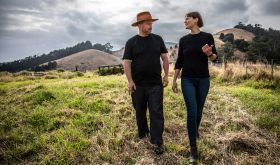CHAMPAGNE
The Comité Champagne, the official Champagne body, is calling 2011 une année inédite, an unprecedented year. They are expecting harvest to start on 20 Aug, making it the earliest harvest date in the history of viticulture in Champagne since 1822. Yields are also expected to be up by 19% on 2010. Champagne experienced an unusually severe winter, followed by a warm spring and a dry summer. Budding was early and flowering an incredible three weeks earlier than usual. The vines are, so far, in rude health.
DOURO
Unusually high temperatures combined with much lower than average rainfall have characterised a year that started off with very high rainfall at the end of Dec 2010. As a result, budburst and flowering were two weeks early and a high rate of vegetative growth has made the vines very vulnerable to powdery and downy mildews. Some growers have lost everything to fungal infection. The Douro producers have had to contend with it all this year, and it does look like the harvest could be coming in two weeks earlier than usual.
GERMANY
Ulrich Langguth of Mo-Rhe-Na sends a preview of the unusually advanced growing season in Germany so far and Michael Schmidt, our own German specialist, adds his comments.
Ulrich Langguth: 'We experienced the earliest budding, the earliest flowering period for the last 30 years at least if not longer. Today [19 Jul] the grapes are hanging and begin to 'shine'. Give them another two weeks and they will be 'in wine', which is four weeks ahead of, say, 20 years ago. The Mosel area was lucky and did not suffer under frost. However, Franken is seriously damaged, on the whole, more than 50% and some valleys up to 100%. The Pflaz and Rheinhessen will report a damage of perhaps 5-7%.'
Michael Schmidt: 'Reading Ulrich’s report there is little to disagree with, only a word of caution to be added. April was indeed the hottest and driest ever for decades, and though this might have looked a good start to the growing season, producers who had planted new vineyards were very concerned about the lack of water.
'Another disadvantage of the vegetative cycle being pushed forward is the increased danger of early flowering being punished by spring frosts, and the first week in May saw night temperatures drop below zero in most regions. Though this can act as a natural selection process and save the trouble of green harvesting later in the year, Franken, Sachsen and Saale-Unstrut suffered losses way beyond even the strictest of normally self-imposed yield reductions. It appears that the dreaded influx of freezing temperatures commonly associated with the Ice Saints (Eisheiligen), a period of three days around mid May, had simply been pushed forward in the calendar by nature.
'Apart from this aberration, May continued where April had left off, with hot temperatures and almost no precipitation. The last thing growers would have wanted at that stage was a 'flaming' June. Nature can be kind as well as cruel, not only granting respite from two months of unrelenting heat but, far more important, gifting all regions with copious quantities of rain. This did not always come in well-measured doses, as demonstrated by the enforced absence of one grower from the Bernkasteler Ring tasting on 7 Jun, who had seen substantial parts of his vineyards washed down the hill the day before.
'July so far has been a mixed batch, temperatures more often moderate than soaring, precipitation at a modest but adequate level. On the 20 Jul the grapes are certainly looking in good shape, both in terms of health and volume, the first véraison of red grapes observed as early as 7 Jul.
'It is true that the best wines of 2010 show very high extract, and to achieve this attribute in 2011 we need a prolonged ripening period, which is more likely to be furthered by moderate warmth than soaring heat. The final fate of the vintage will, as always, be decided in the autumn, though it cannot be denied that things are looking promising right now.'
LOIRE
Vins de Loire sent through a very similar-sounding pre-harvest report on the Loire.
'In the Loire vineyards, the year’s weather patterns are pointing towards a record-breaking vintage, with accelerated ripening, very dry conditions and temperatures well above the seasonal norm. Conditions at bud-break were excellent; this started in the Muscadet area on 15 May and towards the end of May in the Touraine, a good three weeks earlier than average. Stormy spells in June were accompanied by rainfall – the perfect amount, in fact, to promote good fruit set. At this stage of veraison we are very optimistic about the condition of the vines and the health of the fruit itself. As always, the weeks leading up to harvest are crucial... That said, we are expecting an excellent result this year. Early harvests are due to start in the third week of August in the Muscadet area and towards the end of August in the Nantes, Anjou, Touraine and Saumur areas, while Cabernet and Chenin Blanc are predicted to hold out until around 10 Sep. Overall, this will make 2011 one of the earliest ever harvests in the Loire Valley.'
See here for Richard's report on the 2011 vintage in New Zealand.







